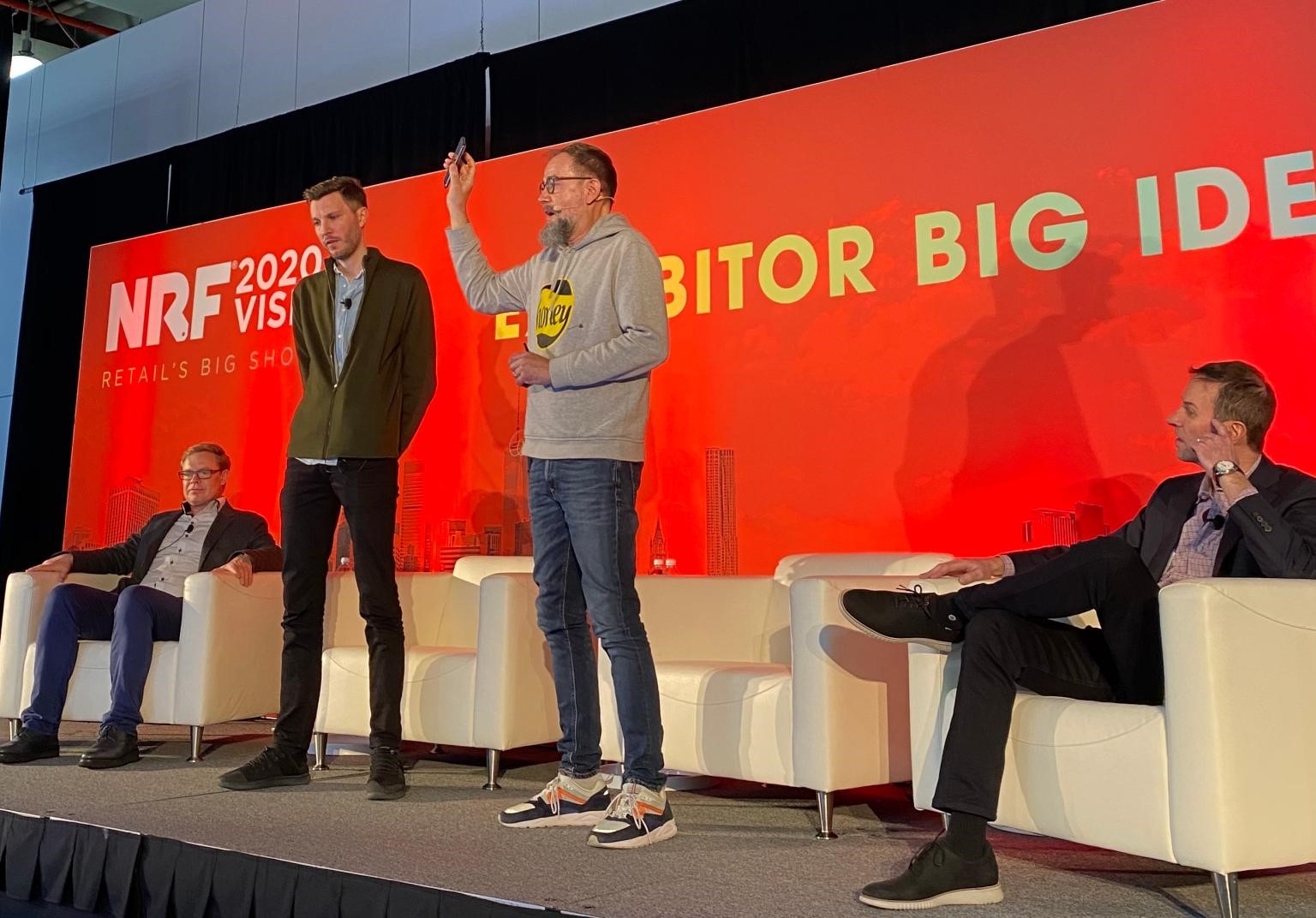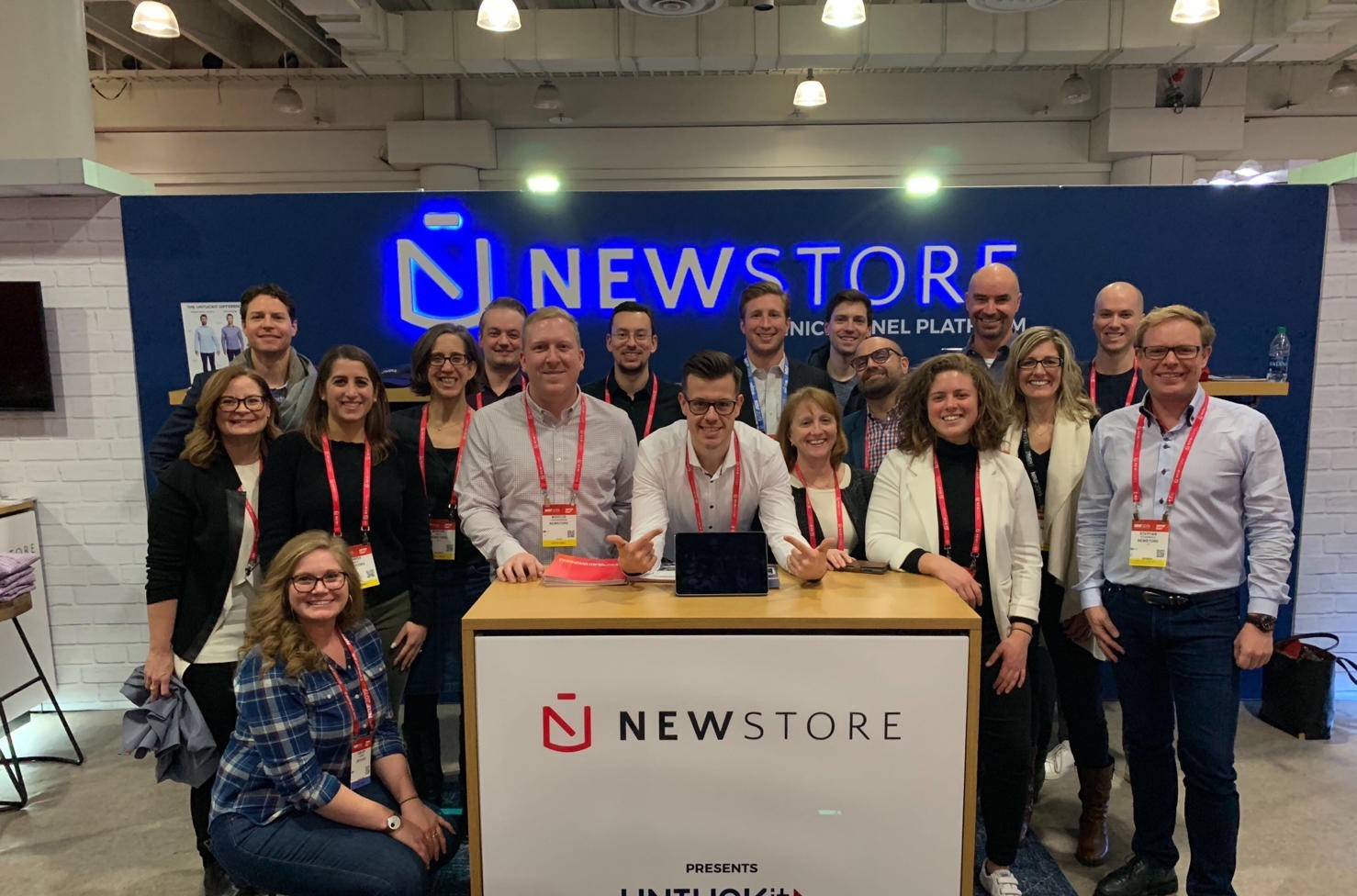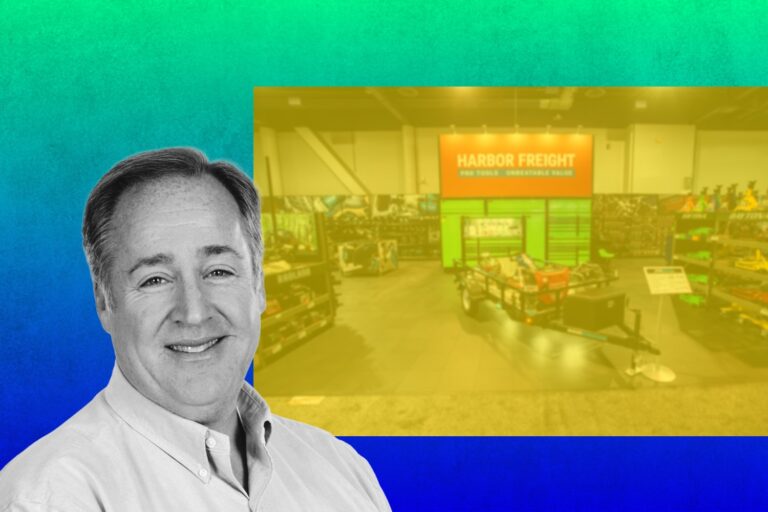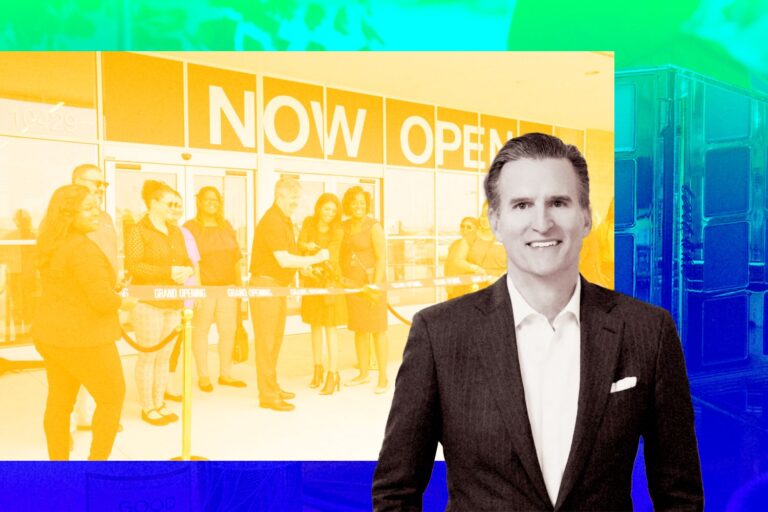NewStore Evolves the Mindset of Conservative Behemoths
Consumers want to purchase things, and brands want to market their products. Nevertheless, if you go inside any brand or retailer today, you’ll discover a lot of complexity that makes this straightforward relationship more difficult than it has to be.
It is the outcome of two things: the conflicting teams in retail and e-commerce, and the patterns of technology purchases that result from this separation. The majority of retail and e-commerce technology is not created with the other in mind, much like the teams themselves. Before the internet completely changed the retail scene, technologies and the people that oversee them were developed in separate silos.
The retail industry has changed. Although selling and buying remain the core concepts, customer experience is no longer linear; there is no obvious way to make a transaction. Consumers demand seamless experiences whether they are in-store, online, or on a mobile device; they do not differentiate across channels; they see a single brand.
As mobile technological advances continue, platform developers are attempting to enhance the mobile commerce experience to competing physical retail stores. Furthermore, the market is investing in and expressing interest in advanced mobile technology.
One company benefiting from the smartphone scramble is NewStore, a software developer and provider of omnichannel mobile commerce platforms based in Boston. This firm runs a platform that enables merchants to manage their storefronts on iPhones. The company offers Omnichannel-as-a-Service with the only integrated cloud OMS and mobile POS, specifically designed for mobile shoppers.
With the startup’s solution, retailers may offer seamless shopping experiences through the infinite aisle, mobile checkout, store fulfillment, real-time inventory, and clienteling thanks to intuitive store employee apps. Retailers can easily build an omnichannel strategy that is quick and flexible thanks to an API-first architecture and a large partner ecosystem.
The startup’s already at its market fit and has been gaining much attraction in the market. It’s not simply a journey that offers customers a more seamless experience while shopping online, but it’s a harsher game that this startup becomes a winner in changing the stiff mindset of all those big and conservative giants in retail. Let’s read on.
Stephan Schambach – the Forefront of Ecommerce for Years
Stephan Schambach was raised in East Germany and completed his high school education there. Schambach left his apprenticeship as a physics lab technician after the fall of the Berlin Wall and the ensuing monetary union to join as a partner in the Hard & Soft Stanja KG in Jena.
One interesting element about Schambach is that his grandfather, a very successful entrepreneur whom he never met, served as his primary source of inspiration. His passion for e-commerce and his professional career is both motivated by this.

In the mid-90s, during the height of Silicon Valley’s first dot-com boom, German software engineer and entrepreneur Stephan Schambach invented the obscure concept of “online shopping carts” and built the first e-commerce software, called “Intershop Online.” Currently, it serves as the foundation for all e-commerce websites.
Stephan Schambach can deservingly be defined as a forerunner of eCommerce. Both Intershop and his second business, Demandware, successfully went public on the US stock market, where he currently spends the majority of his time.
Schambach has extensive experience in the chaotic environment of retail. The pioneer who introduced online shopping and cloud service solutions to the retail sector is once more laying the groundwork for a future of digitally impacted retail. It starts with physical stores and the technology both customers and store associates know and love.
In 2015, as the future of retail shifts to mobile, brands struggle to maintain a profitable omnichannel presence. Many retailers at the time yearned for a solution. Schambach stepped in at that point and handed lifebuoys to those who were in distress. His brand-new company, Newstore, addresses the root problem by offering a ground-breaking, high-conversion mobile commerce solution that integrates offline and online purchasing processes.
Schambach can predict the future of retail, but the epidemic has accelerated his perception of the evolution of e-commerce. After its inception in 2015, NewStore immediately solve the problem of brick-and-mortar stores. However, it’s until the pandemic hit that the startup finally received the hype that it deserves.
It was a Great Moment for Retail to Reshape
While online shopping was already switching the entire economy, the coronavirus pandemic, which pushed nearly all physical retailers to close up shop for months, put the transformation into hyperdrive.
Many mom-and-pop shops went out of business during the three-month statewide quarantine, major retail chains were forced to downsize and close locations permanently, and several already struggling businesses went bankrupt as a result of COVID-19, which was the final straw.
As a result, e-commerce has become a principal business driver as retail outlets across spectrums count on it to keep business flowing during the pandemic—and probably for the coming years.
The pandemic generated a hurry to adopt omnichannel in the retail sector, and NewStore’s platform was perfectly situated to help the brand names looking to make the transition.
The business offers retailers a turnkey solution for everything from BOPIS to store fulfillment to remote selling and more by offering omnichannel-as-a-service that can be activated in-store with just an iPhone. The success of NewStore is built on this.
In a 2021 interview with Observer, Schambach discussed the potential and challenges facing shops as well as how consumers’ shopping experiences will change in a post-coronavirus future.
The start of the COVID-19 pandemic modified the retail sector’s DNA. Foot traffic to brick-and-mortar establishments decreased almost immediately. Consumers at the time did the majority of their shopping online, even for items like food and medical supplies that were frequently bought in-store. As the pandemic has evolved, so did customers’ shopping behaviors.
Consumers actively searched for buy online, pick up in-store options during the pandemic. If they felt safe entering a physical store, they would have chosen to spend less time perusing the aisles by utilizing an app to locate the items they wanted. A feature like touchless payments was expected.
In light of this change in consumer expectations, Stephan Schambach offered some advice for firms: “I would say now is the time to put in systems that ensure that you prosper and that omnichannel becomes a reality. Your customers will thank you, and you’ll be able to utilize your investments in stores and store associates so much better.”

He added, “Everybody says and sees that e-commerce revenues are growing, and that’s great, but to make e-commerce profitable, it is necessary to have a strategy—a blended strategy that finds customers not only through the taxes of the monopolies of this world. For retail, it is just that it’s a differentiated strategy that can expose first-time customers to the brand and also provide great points of service and delivery.”
Flowers will bloom when it’s its time, even so, a flower can’t appeal to eyes of observers without its hypnotizing colors and aromatic scent. The same thing applies to businesses; they can’t hold onto their opportunities if the solutions they provide are of little use to the sector. In the case of Newstore, its solution not only untangles the mess of retail but also creates a more connective relationship between retailers and buyers.
The Platform that Deepens Retailer-Shopper Relationship
The digitization of retail is what is driving NewStore’s growth. The days of using your desktop computer to shop and patiently waiting for the mailman to deliver a product are long gone.
The majority of a modern shopper’s time is spent on their mobile device. According to Schambach, 80% of the time spent on smartphones is spent in apps, and surveys suggest that nearly 50% of mobile shoppers prefer apps to mobile browsers.
Some well-known businesses have strong online presences but lack branded native apps, which highlights the stark difference between the current state of mobile commerce and consumer demand. Shops want assistance with the technology-specific aspects of connecting to the new generation of customers that do everything on mobile devices.
However, it’s very challenging for retail stores to make omnichannel really function. Companies face pressure to provide Amazon’s convenience and Apple’s shop experience. They risk losing consumers if they don’t do it.

To make it simple for retailers to install and give a compelling mobile-based store and online experience, NewStore simply offers all of that as a cloud solution with mobile interfaces, or mobile apps.
Its mobile retail platform is being developed to address four fundamental issues: mobile conversion, a unified online and offline experience, convenience, and engagement.
Without requiring significant backend retooling, the NewStore platform develops a cloud- and mobile-based innovation layer that seamlessly combines stores’ current ERP systems and ecommerce platforms like Demandware.
Using its platform, which enables businesses to offer unmatched mobile convenience, encourage intense consumer connection, and increase sales, NewStore assists companies in developing closer, more profitable relationships with consumers.
“Retailers have seen an increase in mobile traffic, yet conversion rates remain low. This means mobile has untapped potential for retailers, and that’s where NewStore comes in,” said Stephan Schambach.
As a serial entrepreneur who has capitalized on the major turning points in ecommerce, it’s clear to Schambach that mobile represents the next major inflection point. Additionally, the only way to properly understand omnichannel is through mobile.
Expectations for mobile commerce will be shattered when mobile and omnichannel are combined into a unified, strong, and adaptable retail platform, making mobile shopping apps more popular than conventional e-commerce websites.
Mobile customers anticipate being able to buy anything, anywhere, at any time. Brands can now cross the online and offline divide with the aid of NewStore, which assists them in getting their apps into consumers’ pockets.
The NewStore platform reinvents the buyer’s journey as borderless, where personalized, rapid fulfillment is attainable with just one touch, by altering today’s linear commerce experience.
The other driver of growth for NewStore was the ambition to improve the overall customer experience for businesses. “Now store associates can sell everything that’s available in the enterprise inventory, no matter where it is, and customers don’t have to bring in a receipt for a return,” he said. “It’s easy and quick, paying with a phone. Improving the CX, that’s the main motivation for them.”
The brand customers of NewStore are most keenly interested in maintaining the greatest level of control over the consumer relationship, with the majority of sales occurring directly through stores or their own channels while blending in curated marketplaces.
“The direct piece is of the most importance,” Schambach said. There, the customer is immediately touched, and more preferences are discovered. If you have a lot of franchise partners or distribute licenses, it’s challenging to do. These days, the focus is on managing it effectively and creating a cohesive experience. according to the CEO.
As a comprehensive solution shows up, investors start to jump in and take over that delectable pie. That’s how NewStore has won such enormous growth since its name popped up all over the internet.
Snapped in $45 Million to Assist the Pivot of Retail
In 2021, this turnkey omnichannel store solution announced it has secured $45 million in Series B-1 funding. The strategic investment followed the company’s notable global expansion in the first half of 2021, during which time its SaaS revenue increased by more than 100% year over year.
This recent funding is NewStore’s second Series B — the first was raised back in 2017, followed by a $20 million corporate round at the start of 2020, according to Crunchbase data.
The business seems to have been booming ever since. Over the course of its existence, NewStore has raised $155.4M in fundraising across 7 rounds.
To accelerate the company growth, NewStore has acquired 2 organizations. Highstreet Mobile was their most recent acquisition, made on January 14, 2022.
According to Schambach, the latest investment will be used for R&D, increased functionality, sales and marketing, and notably, growth into Europe. With brands like Burton, Frank & Oak, Faherty Brand, and Goorin Brothers as customers, NewStore today has a presence in more than 20 countries. Although the company has a few customers in Asia, it doesn’t currently have a sales presence there.
The quick, adaptable, and user-friendly omnichannel store solution offered by NewStore is the company’s key differentiator. As the retail industry recognizes the promise of omnichannel, NewStore is positioned to support brands of all sizes.
Nevertheless, since the market is changing in a strange way, every business must prepare for all the events that may reform the industry again. As a specialist in the field, Schambach is mindful of this and already has a strategy for the future.
Stephan Schambach – Be Ready for the Future of Retail

Everything brand owners believed they knew about retail has been rocked by the events of the last few years. Widespread product shortages were caused by backlogged supply systems, and the pandemic exacerbated the long-term trend toward e-commerce.
The macroeconomic variables that would disrupt merchants’ plans in 2020 were hard for many to foresee. Yet going forward, retailers could only be able to rely on uncertainty. Schambach has built three commerce companies on the simple premise that change is the only constant in retail.
With his broaden understanding in ecommerce, in 2023, the NewStore CEO has published an article about the future of retail. Stephen Schambach stated, “Over the next decade, I believe that anticipating persistent market changes will be more than a competitive advantage—it will be a need.”
In the end, according to Schambach, a number of global forces will alter consumer behavior, change the shopping experience, and put incumbents in the market to the test. The companies that fail to adapt to the unprecedented ways climate change, talent disruptions and technological advances are impacting retail may exist only in consumers’ memories 30 years from now.
Stephan Schambach noted, “Over the next 30 years, I think successful retailers will be defined not by resiliency, but by their adaptability. They will embrace new strategies and technologies that create value for customers and employees while also enabling the organization to pivot on a moment’s notice.”
He added, “They also won’t simply wait for industry disruptions to pop up before reacting—they’ll constantly search for ways to disrupt the industry themselves.”









